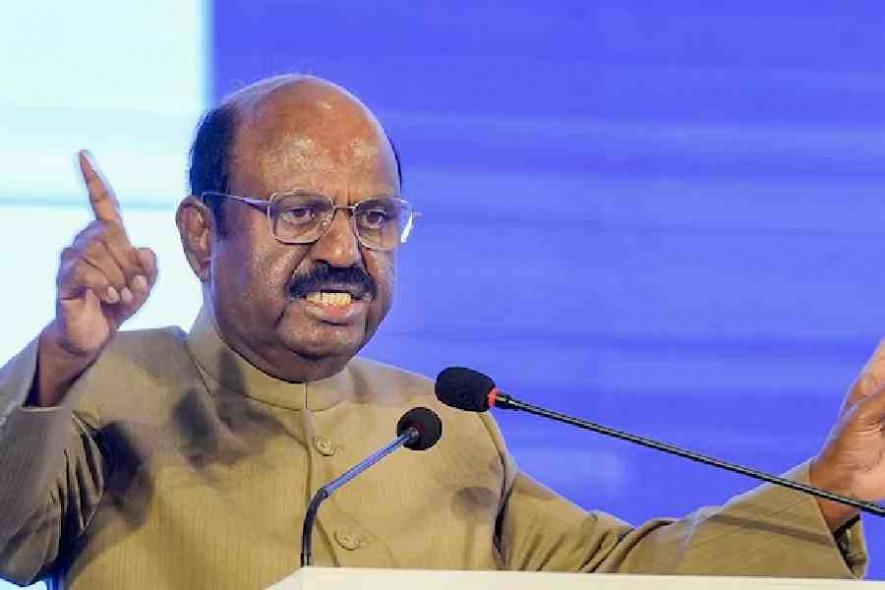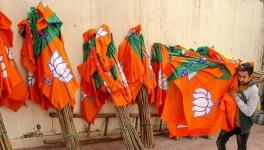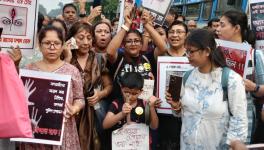West Bengal: Guv-Govt Tug of War on VC Appointments Hitting Higher Education

Image credit: The Telegraph
The battle between the governor and the government has once again occupied the news headlines in West Bengal, with the issue revolving around the appointment of vice-chancellors in state-aided universities. It is surprising to note that almost all the positions of vice-chancellors in 35 state-aided universities are currently vacant, marking an all-time record in the history of higher education in the country. The lawlessness, which was evident in different spheres of employee appointments, ranging from panchayats and municipalities to multiple tiers in school education, has now extended to the appointment of vice-chancellors in state universities.
Bipolar control mechanism
There is no point in denying that the state government bears the primary responsibility for filling the vacancies in the office of the vice-chancellors. Unfortunately, the state government has failed miserably in ensuring such appointments, primarily due to a coordination gap with the governor, who serves as the ex-officio chancellor of state-aided universities. The political divide between the governor and the government was at its peak when Mr Jagdeep Dhankar assumed the governor's role. The letters, emails, tweets, and press statements issued from both sides could easily serve as the script for a compelling TV serial or web series. The political power struggle, which began a couple of years ago between Raj Bhavan and Bikash Bhavan, has now gained significant momentum as the cumulative vacancy of vice-chancellors has reached an all-time high in state-aided universities. Consequently, the bipolar control mechanism in the appointment of vice-chancellors has become the focal point of conflict between two political forces: the BJP and the TMC, who respectively control the central and state governments.
Vice-chancellor centric administration
University administrations in India are essentially vice-chancellor-centric. The vice-chancellor carries out day-to-day academic and administrative actions as the head of the university, based on recommendations from policy-making bodies such as the executive council and other statutory university bodies. On the other hand, the chancellor holds the authority to appoint vice-chancellors but has limited influence over the daily operations of the university. As a result, the roles of the vice-chancellor and chancellor are distinct and not interchangeable.
In West Bengal, the government has raised significant concerns regarding the powers and functions of the chancellor, particularly in light of recent appointments of interim vice-chancellors made by the chancellor "without any consultation" with the state government. However, over the past decade, the new statute has not been implemented by the state government after the amendment of the University Act. Consequently, the previously elected participatory governance system has become non-existent within the university system. Instead, politically nominated vice-chancellors have exercised authoritarian control over the institutions, leading to rampant corruption within the university system.
Top of Form
Actions versus reactions
In the appointment of vice-chancellors, splendid inaction by the state government and hyperactive actions by the Governor, who serves as the chancellor, during the same time period have resulted in an unprecedentedly noisy situation in the functioning of the universities. Recently, the chancellor began issuing advice to the universities to disregard state government orders, even though he constitutionally heads that government. It is relevant to mention that the state government passed an act in 2017 to ensure complete separation between the chancellor and the rest of the university administration in terms of any form of official communication. Surprisingly, this was never questioned by the Governor's office during its approval. Against this backdrop, the chancellor's current advice to ignore the state government in the name of institutional autonomy appears to be more political than academic.
Interestingly, using the aforementioned draconian rule, the government began extending the tenures of many vice-chancellors without appointing new ones afresh. However, such extensions were nullified in the court of law, leading to the chancellor subsequently appointing interim vice-chancellors. Nevertheless, during this troubled time, there was no visible initiative from either the chancellor or the government for the recruitment of regular vice-chancellors.
In addition to the absence of permanent vice-chancellors, there is a lack of permanent deans, permanent governing bodies, a permanent statute, and permanent teaching and non-teaching staff, which have all become permanent threats to restoring academic normalcy in the university system.
However, while appointing such interim vice-chancellors, the chancellor did not consider the essential requirements for such appointments, leading to a major controversy. Even former justices and IAS officers were appointed in the position of vice-chancellors. In this context, it is challenging to logically explain the difference in qualifications and experience between an interim and a permanent vice-chancellor, as both are tasked with running the administration during a difficult transition period. In fact, it was evident that individuals close to the saffron brigade became the natural choice for the selection of interim vice-chancellors, similar to situations in JNU, DU, and Biswa Bharati University.
Additionally, the chancellor has been seen taking special initiatives for the speedy implementation of the New Education Policy during his visits to different campuses. One can conclude from this series of ongoing events that the current battle in higher education in Bengal is the result of well-planned strategies by both the state government and the chancellor to establish political dominance on campuses.
Public-funded education losing reputation?
In response to the actions taken by the Chancellor, the state chief minister has challenged him to cease his 'unilateral appointments,' warning that the government will halt teachers' salaries if he doesn't comply. Such a threat of salary suspension on 'Teachers' Day' amounted to an attack on institutional autonomy and the dignity of the teachers. These teachers, who form the backbone of state-funded education, contribute significantly to the university's reputation through their research output and take major initiatives for research funding and improving teaching and learning standards. The chief minister's actions insulted these educators without any valid grounds.
The government has a constitutional commitment to protect the state's higher education system and ensure the cost-effective and inclusive provision of quality higher education to meritorious students. However, the ongoing confrontations between the Governor and the government are severely tarnishing the universities' reputation. Guardians are losing confidence in state-aided universities, and public perception of them is deteriorating day by day. In the current academic session, thousands of seats remain vacant in government-aided colleges, demanding serious introspection regarding education standards.
In this context, the unnecessary battle between Raj Bhavan and Bikash Bhavan can be perceived as an attempt to undermine state-funded higher education, potentially paving the way for the privatisation of higher education in the state.
The writer is a professor at the Department of Construction Engineering, Jadavpur University, Kolkata. The views are personal.
Get the latest reports & analysis with people's perspective on Protests, movements & deep analytical videos, discussions of the current affairs in your Telegram app. Subscribe to NewsClick's Telegram channel & get Real-Time updates on stories, as they get published on our website.
























